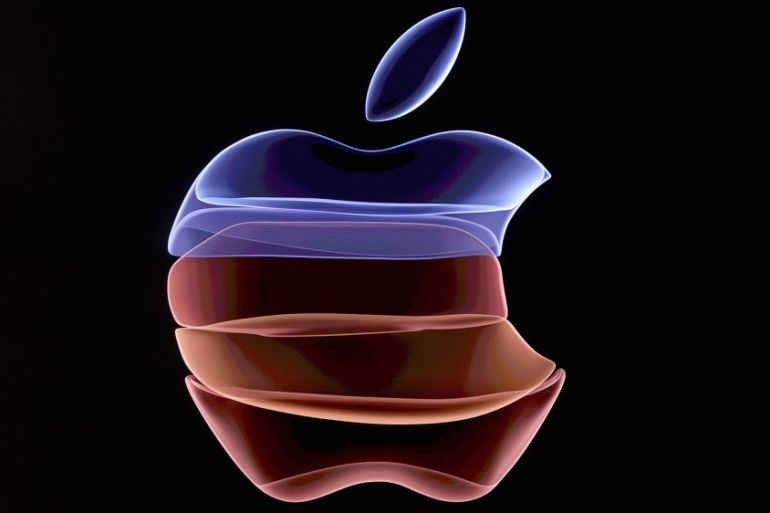Apple says $14bn EU tax order ‘defies reality and common sense’
US tech giant says Brussels is trying to ‘retrofit national law’ in Ireland as EU court hears case over 2016 tax bill.

The European Union‘s order to Apple to pay 13 billion euros ($14bn) in back taxes “defies reality and common sense”, the United States technology giant said as the two sides sparred in a case that is key to the EU’s crackdown on sweetheart deals to multinationals.
The iPhone maker is appealing to Europe‘s second-highest court to overturn the European Commission’s 2016 ruling that it pay the record sum back to Ireland, which gave Apple tax breaks since the 1990s.
Keep reading
list of 4 itemsHong Kong’s first monkey virus case – what do we know about the B virus?
Why will low birthrate in Europe trigger ‘Staggering social change’?
The Max Planck Society must end its unconditional support for Israel
Ireland, which has benefited from investment by multinational companies attracted by low tax rates, is also challenging the commission’s decision.
The EU executive’s ruling in 2016 said the tech giant benefited from illegal state aid due to two Irish tax rulings that artificially reduced its tax burden for over two decades.
Delivered by EU Competition Commissioner Margrethe Vestager, the shock decision put Europe at the forefront of an emerging effort to rein in the power of the US’s largest technological companies.
Now this week’s case could make or break Vestager’s campaign, which has also led to action against Starbucks, Fiat, Engie, Amazon and others, prompting US President Donald Trump to brand her as the “tax lady”.
At the start of two days of hearings at the EU’s General Court on Tuesday, Apple accused the commission of using its powers to combat state aid “to retrofit changes to national law” – in effect trying to change the international tax system and in the process creating legal uncertainty for businesses.
“The commission contends that essentially all of Apple’s profits from all of its sales outside the Americas must be attributed to two branches in Ireland,” Apple’s lawyer Daniel Beard told the court.
He said the fact the iPhone, the iPad, the App Store, other Apple products and services and key intellectual property rights were developed in the US, and not in Ireland, showed the flaws in the commission’s case.
“The branches’ activities did not involve creating, developing or managing those rights. Based on the facts of this case, the primary line defies reality and common sense,” Beard said.
“The activities of these two branches in Ireland simply could not be responsible for generating almost all of Apple’s profits outside the Americas,” he added.
Beard also dismissed criticism of the 0.005 percent tax rate paid by Apple’s main Irish unit in 2014, which was cited by the commission in its decision, saying the regulator was just seeking “headlines by quoting tiny numbers”.
Ireland, meanwhile, lashed out at the EU’s “astonishing” interpretation of tax law.
“The commission decision simply ignores Irish laws,” Ireland’s representative Maurice Collins told judges.
‘Exceptionally advantageous treatment’
The EU executive dismissed the arguments, however, saying it was not seeking to police international tax laws. It also accused Ireland of not having done its homework when assessing Apple’s taxes.
Commission lawyer Richard Lyal said Apple’s argument that all its intellectual property-related activities take place in the US was inconsequential.
“To a large extent that is perfectly correct and perfectly irrelevant,” he said, adding that Ireland was taxing Apple’s Irish subsidiaries, not the group or Apple Inc.
Lyal also said Ireland had failed to examine the functions performed by Apple’s Irish units, the risks assumed and the assets used by the subsidiaries.
“They simply accepted an arbitrary method proposed by the Apple Ireland subsidiaries,” he told the court. “That in itself gives rise to a presumption of a special deal, exceptionally advantageous treatment. It is clear that the tax authorities made no assessment in 1991.”
Paying an average global tax rate of 26 percent, Apple has said it is the largest taxpayer worldwide and is now paying around 20 billion euros ($22bn) in US taxes on the same profits that the commission said should have been taxed in Ireland. In its current financial quarter, the California-based firm expects revenue of $61 to 64bn and a gross margin of 37.5 to 38.5 percent.
The judges are not expected to hand down their decision before 2020. The losing party is likely to appeal to the EU Court of Justice, the bloc’s highest court, for a final ruling that could take several years to be delivered.
The first indications of how the Apple case may finish will come as early as September 24, when the General Court will rule on whether Vestager was right to demand unpaid taxes from Starbucks and a unit of Fiat.